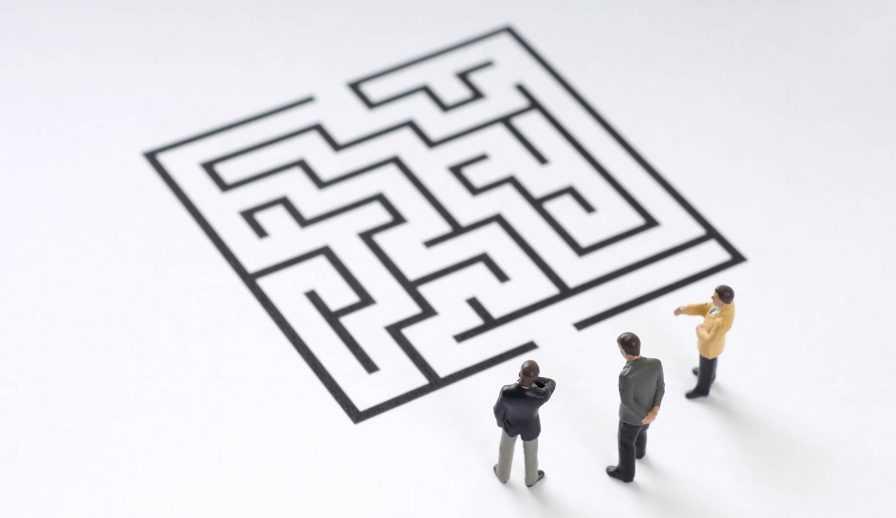Why It’s Hard to Make Decisions (Especially Good, Fast Ones) - Effectiviology
Curated from: effectiviology.com
Ideas, facts & insights covering these topics:
9 ideas
·4.89K reads
10
Explore the World's Best Ideas
Join today and uncover 100+ curated journeys from 50+ topics. Unlock access to our mobile app with extensive features.
Good decisions
To make good decisions, we generally need to do the following:
- Identify the decision: recognizing the need to make a decision, and identifying what that decision involves.
- Set our goals: establishing what we want to achieve with the decision and how important each goal is to us.
- Gather data: collecting the necessary information to make a decision.
- Identify options: researching the options that are available to us.
- Assess the options: identifying the pros and cons of the available options.
- Select the preferred option: Rating options based on their pros and cons, and choosing the one that’s best for us.
231
983 reads
Why people struggle with decision making
- The main reason why decision-making is hard is that every decision makes us go through a process that is most times difficult and complex, and having difficulties with any part of it can hinder the whole process.
- The emotional difficulty that we face when we need to pick only one of multiple possible options means that we have to forego several alternatives that we may find appealing. This is associated with the concept of FOMO (the fear of missing out).
- The decision-making process can be very demanding, from a cognitive and an emotional perspective. Also, the act of making a decision is tiring in itself, since it depletes the cognitive resources.
- Being tired and sleep-deprived can make it more difficult for us to process information, and more likely for us to suffer from various cognitive biases that get in the way of making good decisions.
191
644 reads
“The existence of multiple alternatives makes it easy for us to imagine alternatives that don’t exist—alternatives that combine the attractive features of the ones that do exist. And to the extent that we engage our imaginations in this way, we will be even less satisfied with the alternative we end up choosing. So… a greater variety of choices actually makes us feel worse.”
BARRY SCHWARTZ
190
583 reads
Factors that make it harder to decide
- Complexity: the more complex a certain decision is, the harder it is to choose. A common reason for added complexity in decision-making is that there is a large number of options to choose from.
- Uncertainty: the more uncertainty is involved with a decision, the harder it is to choose. A common form of uncertainty in decision-making is not knowing what possible outcomes your different options can lead to.
- Consequences: the more serious the consequences are for a certain decision, the harder it is to choose. A common serious consequence in decision-making is missing out on a unique opportunity by choosing to follow an alternative path.
185
454 reads
Some people are naturally more indecisive than others
There are a few personality traits that are found in indecisive individuals:
- Neuroticism: the tendency to be prone to negative emotions and psychological stress is strongly correlated with indecisiveness, as is perfectionism.
- Indecisiveness is associated with the tendency to interpret ambiguous situations as threatening, and to engage in worst-case reasoning.
- Indecisiveness is also related to procrastination, and particularly with a type of procrastination called decisional procrastination - unnecessarily delaying when it comes to making decisions.
194
518 reads
The role of intuition in decision-making
When making decisions, using your intuition is not essentially good or bad; this depends on multiple factors, such as the circumstances at hand and the way you use your intuition.
While you should be willing to use your intuition where necessary, you should assess the situation first, and make sure that using intuition is the best option for you, and that when you do use it, you do so in a proper manner.
169
425 reads
Emotions and decision-making
Our emotions can makes us act in an irrational way and make bad decisions. But don't ignore your emotions entirely; they are not necessarily the cause of our bad decisions.
You should take your emotions into account in a rational way, without giving them the power to prevent you from conducting a proper decision-making process.
172
415 reads
Get better at making decisions
- Be aware of the cognitive biases that might influence your thinking, and then use debiasing techniques to reduce those biases (imagining you're you’re giving advice to a friend, for example)
- You can rely on your intuition when it’s appropriate to do so in quick decision making, but make sure to limit the amount of information you take in, embrace the concept of good enough, and identify the cost of delaying.
- For hard decisions, when you’re struggling to choose, you can focus on the concrete facts, eliminate weak options, look at secondary factors, and visualize the future outcomes of choosing different options.
190
402 reads
Types of indecisiveness
- Exploratory indecisiveness: a long and drawn-out struggle to make decisions, even after all the options have been explored thoroughly.
- Impetuous indecisiveness: quickly making decisions but constantly also changing one’s mind about them.
173
471 reads
IDEAS CURATED BY
Evan Y.'s ideas are part of this journey:
Learn more about problemsolving with this collection
How to challenge assumptions
How to generate new ideas
How to break out of traditional thinking patterns
Related collections
Similar ideas
5 ideas
Decisive People Don’t Make Better Decisions - Neuroscience News
neurosciencenews.com
4 ideas
How to Form the Decisiveness Habit : zen habits
zenhabits.net
5 ideas
What Choices Do You Make?
vertexviews.wordpress.com
Read & Learn
20x Faster
without
deepstash
with
deepstash
with
deepstash
Personalized microlearning
—
100+ Learning Journeys
—
Access to 200,000+ ideas
—
Access to the mobile app
—
Unlimited idea saving
—
—
Unlimited history
—
—
Unlimited listening to ideas
—
—
Downloading & offline access
—
—
Supercharge your mind with one idea per day
Enter your email and spend 1 minute every day to learn something new.
I agree to receive email updates


